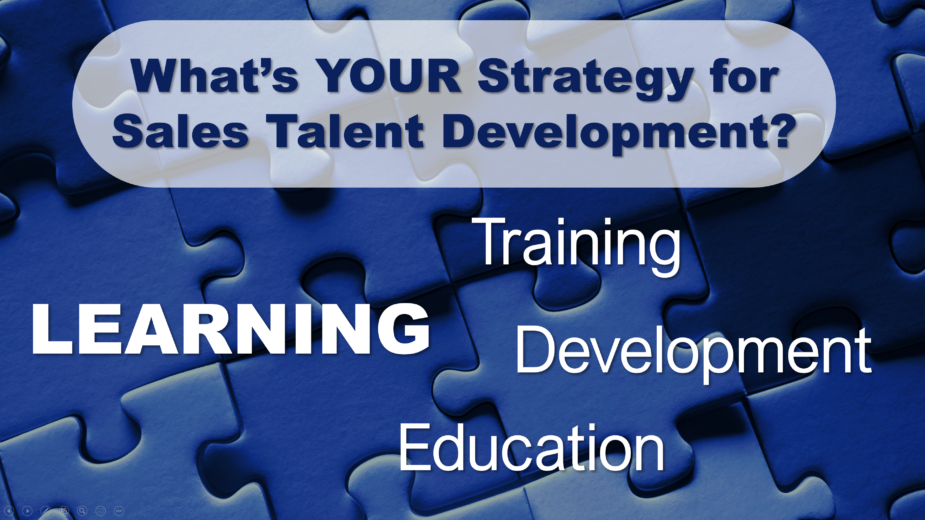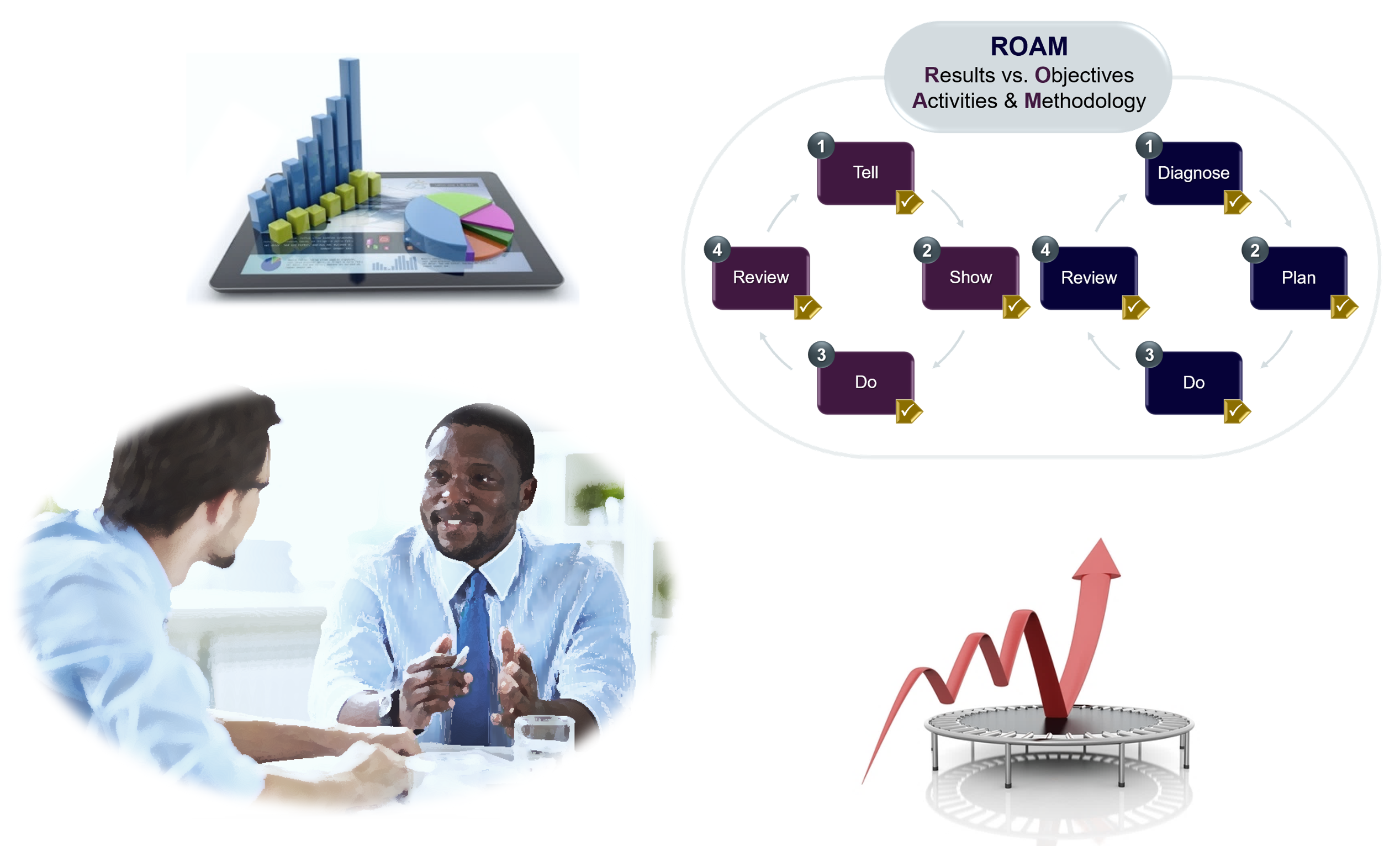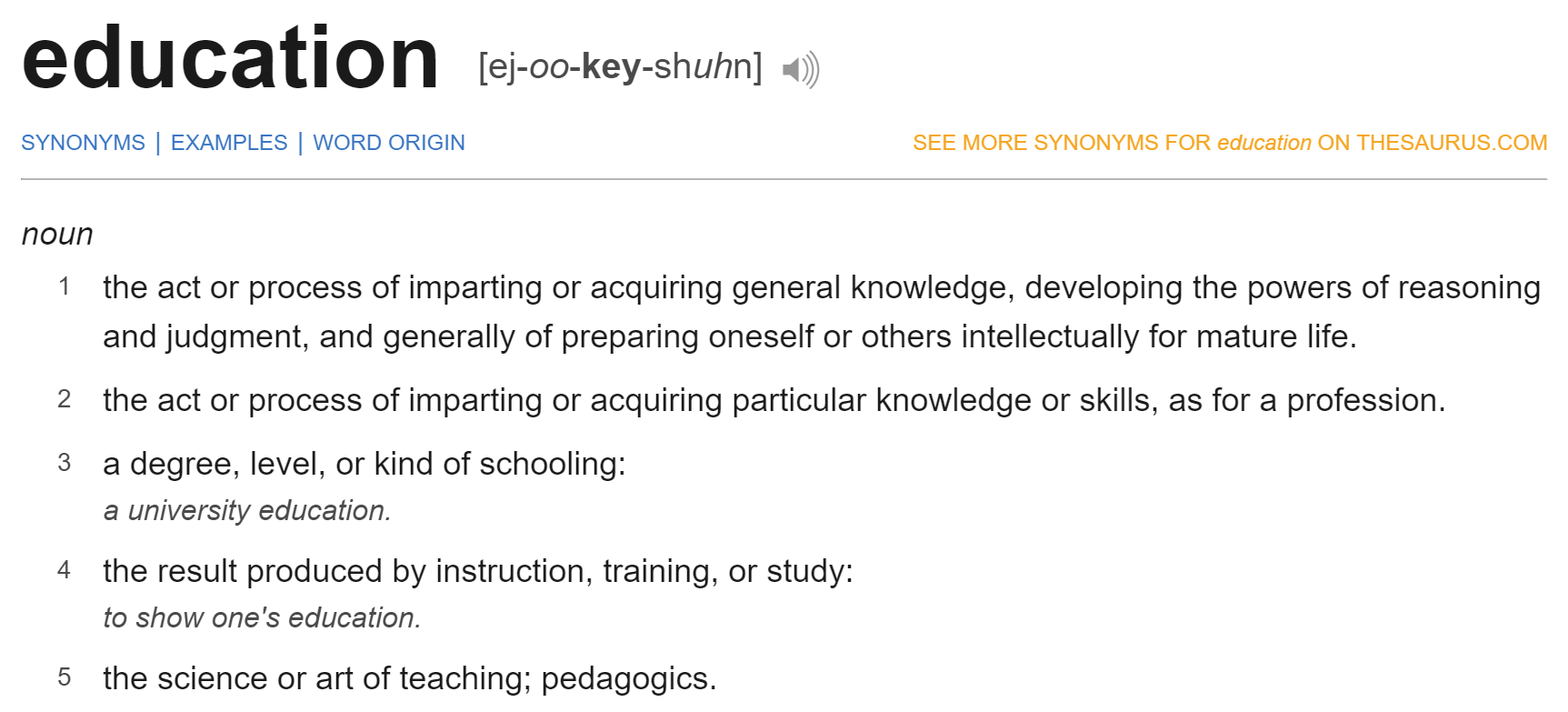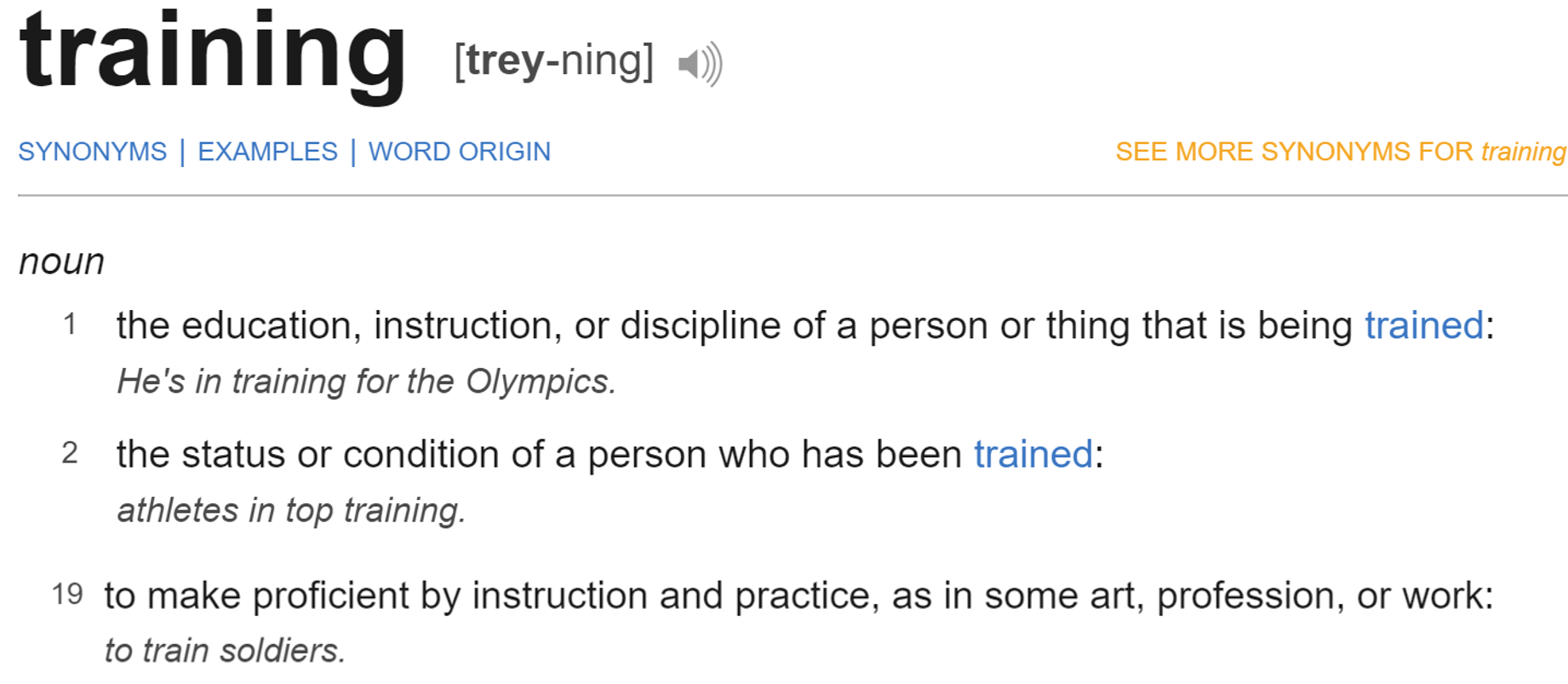What’s Your Strategy for Sales Talent Development? Part 1

One of the things that’s been on my mind lately is the difference between education, learning, development, and training as they relate to sales talent development organizational learning strategies for Sales.
Why? In the past three months, I’ve had this conversation (“this” meaning talent development and organizational learning strategy for Sales) with four different company leaders (C-suite, sales, or sales training/enablement), so it seemed time to share some thoughts on the topic.
This isn’t a new topic, and I’m not the first person to write about it, but I see these four terms getting jumbled and mixed up all the time in the market. This leads to some conflated and confused training strategies, which then – along with poor implementation – do not yield the results they should.
In this series, I’ll define the four terms – Education, Learning, Development, and Training – as I see them, and share how you can create strategies for each, as applicable for your business, to improve both learning effectiveness and sales results.
Let’s start with those definitions.
The Definitions
Education
From Dictionary.com: https://www.dictionary.com/browse/education
Education is generally longer-term learning, for some future purpose. It shapes what you know (acquisition of knowledge), influences how you think about things, and often readies you for what you are preparing to do as a career. You receive Education primarily through schools and colleges/universities.
I’ve always liked the quote that is often attributed to Albert Einstein, although it’s more of a loose paraphrase: “Education is not the learning of facts, but the training of the mind to think.”
In my experience, few people have ever been “educated” into better on-the-job performance, unless that education also included skills training (as it does in the Sales Education Foundation’s university programs, with practice and role play competitions, or hands-on experience using software programs). That aside, education is not usually role or task-specific.
Note: Vocational programs are the exception, preparing students with real-world experience through practicums, clinical rotations, apprenticeships, and other job-specific training and work experience to prepare them for technical jobs or skilled trades, rather than providing academic education to pursue careers in a professional discipline.
Learning
From Dictionary.com: https://www.dictionary.com/browse/learning
Learning is the act of acquiring new knowledge and skills (and hopefully, for work-related learning, applying what was learned).
The term has risen in popularity in the past decade as a departmental/function name (often moving from “Training and Development” or “T&D” to “Learning and Development” or “L&D”), with some espousing the mantra that people learn, and animals are trained. I find that distinction clever but silly. When you train a dog or a person, they learn. The motivations and methods may be different (let’s hope, although everyone likes treats), but both learn, and both can be trained to perform a specific task.
To me, learning is an over-arching term — it applies to education, training, and development. How people learn is studied and researched. It influences how we design instruction and learning experiences, and how we train. Whether you’re being educated, developed, or trained, you are learning (hopefully).
Learning professionals hear a lot about 70:20:10 these days, so that theory is worth mentioning. While the origins are difficult to track down and specific data on the 70%, 20%, 10% split are elusive and likely invalid, the general concepts seem to make sense.
To learn a specific job or to reach mastery in it, advocates of 70:20:10 suggest that:
- a small amount of learning (the 10%) comes through purposefully orchestrated and structured training (formal learning)
- a slightly larger amount of learning (the 20%) comes from other people, informally through exposure or collaboration/sharing (informal or social learning)
- the largest amount (the 70%) comes through personal, on-the-job experience, through day-to-day experience (experiential learning).
Will Thalheimer, a learning researcher, consultant, speaker and founder of The Debunker Club, has poked into the 70:20:10 theory recently, if you’d like to learn more: https://www.worklearning.com/2019/04/19/the-70-20-10-framework-gets-its-first-scientific-investigation/
I’d suggest that you set the specific percentages aside but keep the concept in mind. I’ll address this again when I elaborate on organizational learning strategies.
Development
From Dictionary.com: https://www.dictionary.com/browse/development
Development is a targeted form of personalized learning to foster growth. Sometimes it is generalized; sometimes it is targeted at individual needs. It might include shaping your views toward diversity and inclusion, adopting a more successful mindset, controlling stress, benefiting from assessments or executive coaching, working with a mentor, preparing you for another role or a career change, or it might be part of an overall “developmental plan” to close a competency gap (in which case it would also involve skills training and coaching).
Note: For clarity, I’m not intending to use developmental plan as a euphemism for corrective action or a Performance Improvement Plan.
Training
From Dictionary.com: https://www.dictionary.com/browse/training
Training is job-related learning about what, why, and how to do something (or multiple things), to be successful in a specific role. If the nuance exists, it may include when and where to do these things, as well as how much or how often to do them. This is role-specific, competency-based, performance-oriented learning that should result in on-the-job performance at acceptable levels or improve performance.
Where’s Coaching?
I had a feeling you might ask this (and if so, good for you). We can always debate this (and I’m sure someone will – even I see both sides), but I don’t really see coaching as a separate learning strategy. To me, especially for learning skills, it’s something that’s embedded, which happens as part of those other strategies. If you want a sales rep who has been trained on a skill to achieve mastery, then reinforcement, practice, feedback loops, and skills coaching will be required. If you want someone to develop a growth mindset, coaching will surely be needed, over time.
Next Up: The Strategies
In the next post in this series, I will share strategies for organizational learning, that utilize training, development, and education (utilizing coaching, as appropriate), to create a learning culture, address needed competency development, and improve sales results.
__________________________________________________________________
Thanks for reading, be safe out there, and by all means… let’s continue to elevate our sales profession.
Mike
Let’s get connected:
- Transforming Sales Results Blog: https://www.mikekunkle.com/blog
- SMM Connect Webinars: http://bit.ly/STSTonSMM
- BrightTALK Webinars: http://bit.ly/TheSalesExpertsChannel
- LinkedIn Publisher: http://bit.ly/MikeKunkleLIPublisher
- LinkedIn Profile: http://www.linkedin.com/in/mikekunkle
- SlideShare: http://www.slideshare.net/MikeKunkle
- Twitter: https://twitter.com/mike_kunkle





